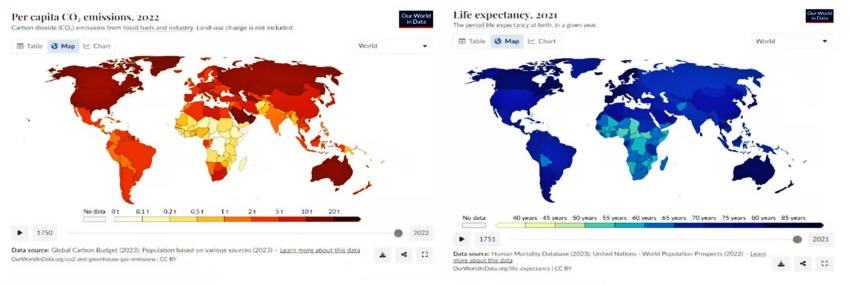|
This may seem backward or even alarming, but it is entirely logical.
For a quarter century, the industry has been dominated by private investors and corporate interests who are attracted to a market for which products can be coerced and mandated without restrictive advertising standards.
The growing narrative around climate and health promises to be the apogee of this approach.
Some seem to have arisen by common consent, and some are driven from above, but it can be hard to identify their origins.
The Enlightenment supposedly brought Europe out of the Inquisition, and while true in some ways, it is also an illusion.
We don't need to think an Inquisition is right or wrong, just acknowledge that we all put limits on freedom of expression and filter which ideas can be shared.
The world as we perceive it is nearly always full of exceptions to any rule we come up with.
For example,
Our taboos and the dogmas that accompany them rarely stand the test of life.
However, they are vital tools for mass marketing if one must break a scientific approach in order to sell a product.
Because we are educated and progressive, and health is so important, we claim a right to bypass much of the conversation that Enlightenment normally requires.
We need to fast-track things to the truth because they are so important, and we are so knowledgeable about them.
While this may seem reflective of the inquisitors of old, we hold that there is a fundamental difference; they were wrong, and we are right.
Climate change and its effect on health is a good example.
This will become clear by explaining the official
public health industry position in this area, which is critical both
to continued human existence and to securing future funding.
The public health professions, not least at the international level, are adamant that climate change is an "existential threat."
Dogma states that this is almost solely driven by human activity, particularly the burning of the fossil fuels on which the last few hundred years of technological and medical progress have relied.
It also implicates traditional meat diets in driving the climate.
The Director-General (Tedros Adhanom Ghebreyesus) of the World Health Organization (WHO) is adamant that this must be "his" organization's priority.
Two hundred medical journals considered it so important that they abrogated editorial standards to publish a letter highlighting various controversial claims as dogma.
As an example,
They were not ignorant of this - they just considered the issue so important that it was worth misleading the public in order to gain a required response.
So, this is where we are on climate in the public health sphere.
We are funded, as a group, to impose someone's dogma...
We are still all in favor of human rights and evidence-based policy, but we consider ourselves entitled to ignore them in order to 'protect' them.
To explain further, it is useful to list what is deemed acceptable in the international public health industry to secure a salary and serve our "funders"...:
Some of these are true, or at least have a kernel of truth - although actual outcomes obviously depend on our ingenuity to cope with change, which we are historically very good at.
Taken alone, this list constitutes a compelling reason to reach net-zero carbon emissions and force a change in diets. A delay through continued open debate would make outcomes worse.
As a result, we have formed them into dogma and enforce this, protected by a series of taboos, including the following (which, to protect public safety, you can delete later):
This second list is demonstrably true...!
But such is our concern and discipline (we prefer these terms to 'fear' and 'cowardice') that we don't discuss them in open forums. Even poverty reduction, once integral to public health, is now taboo in the context of climate change.
Public acknowledgement that net-zero policies entrench poverty and inequality would put the entire narrative at risk.
Correlation between CO2 emissions and life expectancy. Yes, correlation can indicate causation. Adapted from OurWorldInData.org: https://ourworldindata.org/co2-emissions; https://ourworldindata.org/life-expectancy.
Malaria as an Example of a False Example
Malaria is interesting as it exemplifies public health's move to dogma over debate.
I have been in forums of malaria 'experts' where they agree in small groups that there is little compelling evidence associating climate change with worsening malaria, but in a subsequent plenary none will question this claim.
I have been pushed to falsely implicate climate in a report for a major international health agency as a driver of worsening malaria, though it was agreed the evidence on which the report was based did not support this.
As a profession, lying is deemed acceptable if the subject is important enough.
One agency claiming this justifies another to highlight it, which can then be used as evidence of consensus by the first.
It was popular 15 years ago to call malaria "a disease of poverty."
It is...
It also requires a warm moist environment to support the mosquito vector. Warmth improves mosquito survival and, importantly, reduces the time taken for the parasite to mature in the mosquito before it can infect another human.
However, malaria is no longer endemic in Singapore and is now rare in Malaysia, because they have become wealthy.
Money allows access to insecticide-treated bed nets, diagnostics, medicines, and good supply lines, which stop malaria. However, it still kills over half a million children every year. Malaria has indeed spread in the highlands of Papua New Guinea and Ethiopia, as a warming climate allows mosquitoes to live at higher altitudes.
However, countries further from the Equator that should be most impacted by a warming climate allowing mosquito habitats to move north and south are seeing the greatest progress in malaria elimination.
On a global scale, malaria mortality has risen since early 2020, with progress having slowed or reversed some years earlier. There are many contributors to this.
We have growing resistance to the insecticides used in bed nets and house spraying (alternatives are more expensive), some increasing resistance to major antimalarial medicines, and genetic changes in the parasite that have made it harder for some blood tests to detect them.
A diversion of human resources occurred from malaria programs to (demonstrably pointless) Covid-19 vaccination programs.
There is also a reduction in funding in real terms, and an increasing funding gap to provide access to the core interventions - nets, spraying, diagnostics, and drugs - that malariologists consider essential, whilst at-risk populations increase due to high birth rates.
This complexity is becoming harder to discuss. Now, climate change is proclaimed the major threat to health, soon to "overwhelm the world's health systems," and the WHO and partners are prioritizing reaching net zero.
It is not that climate change is irrelevant to malaria, but that the malaria community is unable to actually weigh it, and proposals for its mitigation, in an objective manner.
Net-zero policies will logically exacerbate poverty, increase transport costs, increase malnutrition, and thereby drive higher overall malaria mortality, but such discussion is taboo.
We Can Choose Slavery or Science
So, the issue of health, climate, and CO2 is complicated.
The WHO now adopts this approach, and literally invents a narrative, maintaining that,
This creates media headlines but loses the trust of rational people once they are exposed to reality.
A rational assessment may even conclude that, through increasing the human food supply, rising CO2 and perhaps even warmer temperatures may provide an overall health benefit.
Or, they might be outweighed by negatives, which are real in many regions.
Some areas will lose rainfall, some may see more floods, and if the sea level rose by 20 feet it would create a crisis the likes of which we have not seen in history.
But stopping this would depend on the current global warming episode being almost entirely due to human action while those in the past were not (interesting) and then these causes being remediable without causing net harm to over 8 billion of us, which is highly unclear.
In public health, we do not discuss this, as it is awkward...
We maintain this taboo for one of two reasons:
Or,
The first reason is essentially fascist, whilst the second is cowardice...
Either way, we are acting falsely and disingenuously about climate change and health, and we all know it. We label the second list of bullets above as misinformation and censor it.
If we argue that we are doing this for a greater good, we therefore see this within the hierarchical, feudalist model that allows a few to dictate restrictions and poverty on the many.
Alternatively, we could embrace the truth, however dangerous and worrisome, through a rational and open discussion.
This might help restore trust in public health, but it could also wreck our careers.
It all comes down to where we place ourselves, and others, in a hierarchy of values.
But that, in the current climate, would take courage...
|



